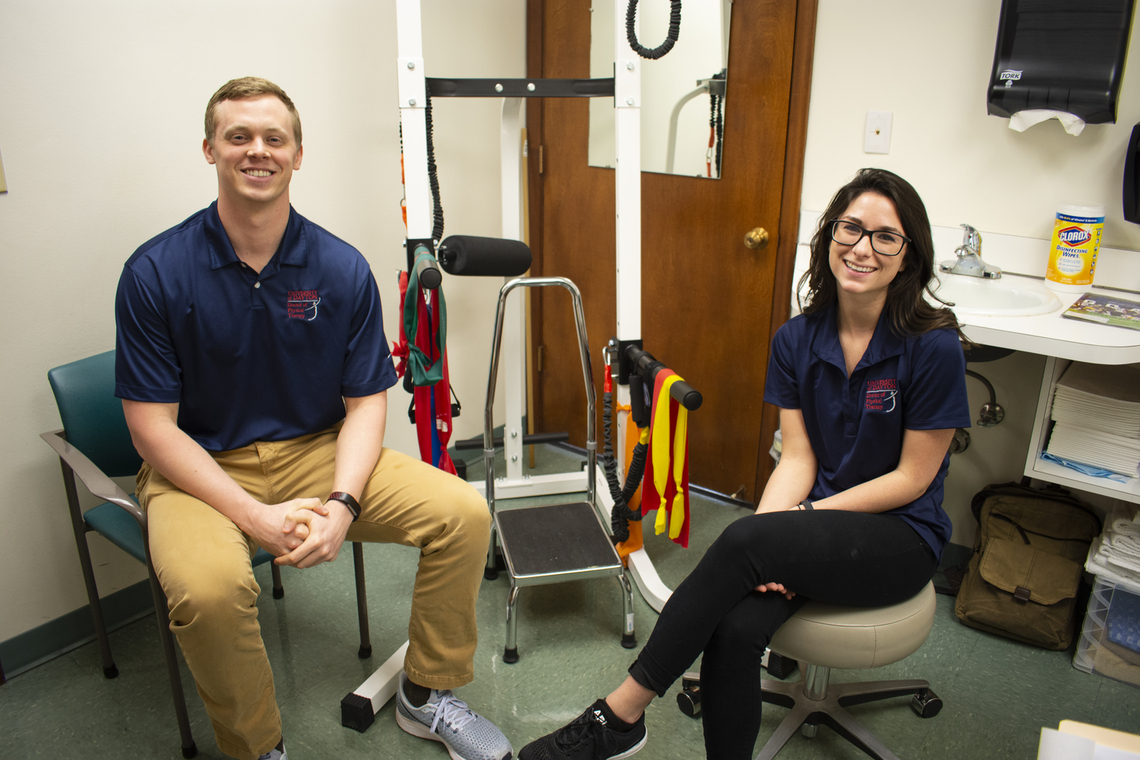President's Blog: From the Heart

Reaching Out
By Eric F. Spina
When University of Dayton students meet with patients to assess their conditions at Reach Out’s free clinic, they’re learning skills that go well beyond the textbook.
They’re cultivating — and practicing — compassion and empathy as they help provide care and a safety net for the most vulnerable in our community.
That’s the lesson I took away after touring the clinic and listening to pre-med and doctor of physical therapy students tell me about their volunteer work on the frontlines with the underserved and uninsured.
Under the mentorship of Reach Out Executive Director Sharon Sherlock, volunteers from UD and area universities worked with professional staff last year to log an impressive 11,325 hours in the clinic. They served thousands of patients, providing more than $280,000 in free care. The on-site pharmacy filled more than 18,000 prescriptions, thanks to pharmaceutical and financial donations.
“Every person has a story. You just have to listen,” said Megan Marasco, a senior premed student from Columbus who coordinates the volunteer schedules of the 22 students in Med 210, the “Premed Community Health Experience” mini-course.
A common thread tends to run throughout the stories Megan and her classmates hear when they’re taking down a patient’s medical history or shadowing a doctor. They’re discovering that any one of us can find ourselves one job loss away or one doctor’s diagnosis away from needing the services of Reach Out of Montgomery County. For some people, their medical insurance’s deductible is too high for them to seek care through a doctor’s office. Others, straining to make ends meet through one or more part-time jobs, don’t qualify for employer-provided insurance. Some elderly on a fixed income face a coverage gap with their prescriptions.
“When you see someone struggling to get their medications, it changes your perspective,” said Chad Jaenke, a junior premed major and a Berry Summer Thesis Fellow from Cleveland. “I’ve learned how to interact one-on-one with patients. But I’ve learned something deeper. I’ve learned empathy.”
Every time I hear students reflect on their experiential learning opportunities — whether it’s lessons learned from living among the people of Appalachia during the summers or traveling 8,300 miles to Malawi to conduct human rights research — I’m moved by their willingness to venture outside their comfort zones. I’m impressed with their critical minds, but I’m also touched by their compassionate hearts.
“This experience instills in students that an important part of being a health care provider is serving others,” said Kathleen Scheltens, director of UD’s premedical programs who also leads a winter break international medical experience program in Central America, where students work in a medical and dental clinic and conduct public health projects.
Our students are learning that when you give of yourself, you receive far more back.
And by reaching out, you reach your potential.
